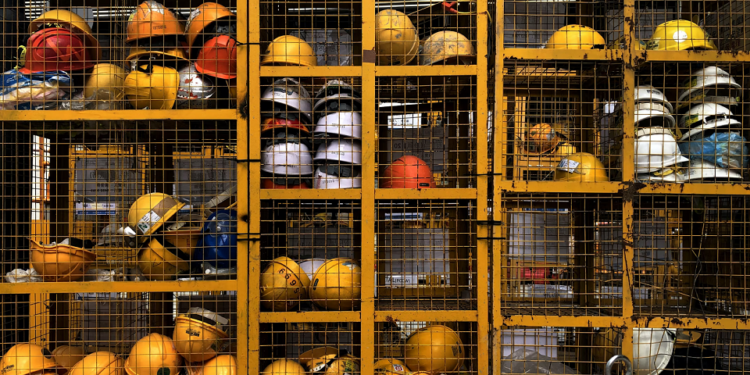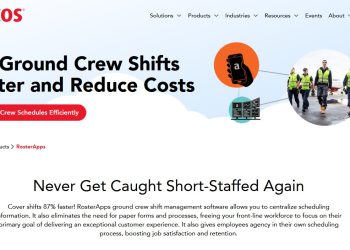You may think that because your small business only has a handful of employees, you may not need workers’ compensation. But this belief can have severe financial consequences in the event of a workplace injury.
If you plan to establish a small enterprise soon, you may want to read up on workplace injuries and their impact on your business. Here’s what you need to know.
Defining Workplace Injury
An employer is responsible for medical conditions aggravated or caused by employment. To be considered a workplace injury, the injury must occur while carrying out the interest of an employer.
The accident does not have to take place at the office or on the employer’s premises for it to be covered by workers’ compensation.
The following situations are several examples of workplace injuries:
- Slips and falls
- A series of repetitive movements resulting in a disability
- A condition that work has made worse
Common Causes of Workplace Injuries
For small business owners, workplace injuries can be costly. According to the 2021 data from the Liberty Mutual Workplace Safety Index, companies in the US spend over one billion dollars a week on workplace injuries.
To help reduce this figure, you need to create a safe working environment for your employees. Learn the common causes of workplace injuries below.
Overexertion
Overexertion occurs with repetitive pushing, lifting, carrying, pulling, holding, carrying, or throwing heavy objects. To prevent injuries related to this situation, give your employees ergonomic equipment and proper safety training involving physical tasks.
Running Into Objects
These accidents take place when a staff runs into a piece of equipment, immovable objects or a part of the building structure. For example, a worker could hit their head on a low ceiling or a structural beam.
Potential issues like these highlight the importance of having a well-designed working space for employees, so that the chance of injury is reduced.Same-Level Falls
Same-level falls are common accidents that can happen anywhere and to anyone at an office. Wet floors, loose wires, broken tiles, or an open file cabinet drawer can cause people to slip or trip.
The Liberty Mutual Workplace Safety Index reveals that injuries from these situations had cost US businesses $10.58 billion in 2021.
Other Exertions
These accidents occur when an employee is engaged in excessive physical motion or a strenuous effort. Repetitive actions are usually the cause of these injuries, and they can happen with just about any type of job.
To prevent these accidents at the office, make sure your workplace uses proper signage that warns people of any risks. Managers must also perform regular inspections to ensure that their employees’ work environment is safe.
Do You Need Workers’ Compensation Insurance?
Almost all states require businesses like landscaping to carry workers’ compensation insurance. While regulations on workers’ compensation vary by state, companies need a policy as soon as they hire their first worker.
Although some states, like Texas, do not require this policy, a workers’ compensation insurance can protect an organization against employee lawsuits and medical expenses.
In some states, even part-time workers have the right to take legal action against their employers if they do not get compensated for an injury.
For example, Colorado businesses are required to have workers’ compensation insurance if they have one or more employees. This regulation applies to all employers, regardless of whether the workers are family members, part-time, or full-time. In the state, any person who receives money for the work they perform is considered an employee.
Without proper compensation, injured staff can take legal action against your company. Today, several legal services providers specialize in workers’ compensation to support those who are hurt at work.
Bendinelli Law Firm, PC is one of the several personal injury law firms that can help employees who want proper compensation after getting injured at the office.
Factors Affecting Workers’ Compensation Insurance Cost
A workers’ compensation policy can protect the well-being and livelihood of your staff who sustained injuries at work. If you want to get one for your business, you must consider the four factors that can affect how much your workers’ compensation premiums will cost.
1. Industry
The risk of sustaining a workplace injury is present in every type of industry. But the degree of the risk varies depending on your business sector.
For example, employees involved in physically demanding work are more at risk of getting injured on the job. Those working in industries, such as mining, manufacturing units, transportation, and construction are more exposed to hazardous environments. Because of this exposure, your workers’ compensation premiums will be higher.
2. Payroll
The size of your business and the manner you classify your employees can directly impact workers’ compensation premiums. Insurers require firms to complete and submit a workers’ compensation payroll audit after every policy renewal to ensure accuracy.
If the audit shows that your payroll was higher than what you first reported, you will have to pay the additional workers’ compensation premium.
In contrast, overestimating payroll could result in a refund from your insurer after the audit. While this case may seem appealing, it can be better to have that extra money throughout the year when your business needs it the most.
This issue highlights the importance of accurate workers’ compensation payroll reporting. Underestimating and overestimating your payroll come with disadvantages that you want to avoid.
3. Policy Duration
The period in which you buy the policy can also impact the total cost of your workers’ compensation premium. For instance, if you purchase the plan for a one-year term, your premium will be more affordable compared to a policy with a longer duration.
You can request a discount from your insurer if you are buying a policy with several years of tenure. Additionally, you can get a discount for your renewal policy if there are no claims to your existing insurance plan.
4. Safety Standards
Every company has its own set of safety standards as per law. The cost of your worker’s compensation premium will depend on how stringent your organization is in terms of following safety regulations.
For example, when you conduct your business in a small office that has a risk of catching fire, but you have the correct setup for extinguishing any possible fire. Your insurance cost could be more affordable than they’d be otherwise.
Protect Your Small Business and Employees With Workers’ Compensation
Whether or not a workers’ compensation policy is required by law in your state, there are many crucial reasons why getting one might be in your small enterprise’s best interests. Although it will make a significant cut on your budget, the odds are that its total cost is far less than the medical and legal fees you will have to pay if your employee gets hurt at work.
With workers’ compensation insurance, you are protecting not only your employees but also your small business. It can limit exposure to lawsuits since most policies include liability insurance, which protects a business owner if a staff claims negligence caused their injury.
If you need help getting a workers’ compensation policy for your business, you can speak with an insurance agent. With their help, you can find the right insurance to fit your budget.






